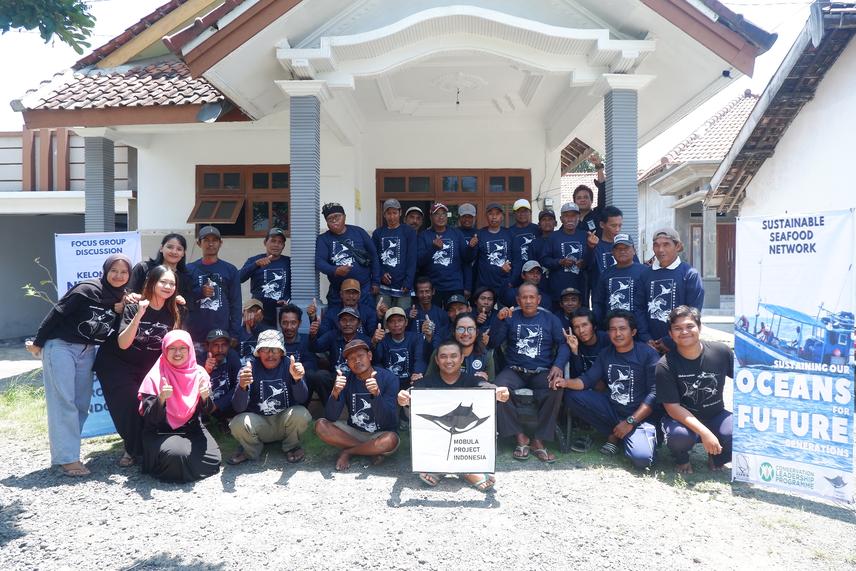Osmaleli Osmaleli
Shark and ray populations are experiencing dramatic global declines, driven by overfishing and growing demand for their products. In Muncar, East Java – Indonesia's third-largest artisanal fishing port – threatened elasmobranchs like the pelagic thresher shark (Alopias pelagicus) and scalloped hammerhead (Sphyrna lewini) are frequently caught.
As a conservationist working closely with coastal communities here, I've seen how limited awareness, weak policy enforcement, and socio-economic pressures contribute to unsustainable practices. The goal of this project is to promote sustainable shark fisheries and conserve two threatened elasmobranchs, the pelagic thresher and the scalloped hammerhead, through behaviour-informed and incentive-based approaches.

Building trust through deep conversations with the fisheries industry for a sustainable future. © Mobula Project Indonesia.
We will apply a method to explore fishers’ underlying perceptions regarding bycatch, guided by the Theory of Planned Behaviour (TPB): a well-established and evidence-based framework commonly used to understand and influence human behaviour. Then, we will demonstrate this approach through an empirical case study that investigates fishers’ perceptions of bycatch-related behaviours concerning two threatened elasmobranchs, the pelagic thresher shark and the scalloped hammerhead, within a small-scale gillnet fishery in Muncar.
The study introduces an innovative methodological integration of scenario-based interviews and Contingent Valuation (CV) to examine and co-develop locally tailored Payment for Ecosystem Services (PES) initiatives, and we will also evaluate the impacts of the programs on conservation outcomes (numbers of retained catches, trends in relative abundance) and human well-being outcomes (attitudes and subjective well-being) using a Randomised Control Trials design. These tools are employed to assess how various incentive structures may shape fisher decision-making and affect mortality rates of the pelagic thresher and scalloped hammerhead in Muncar, Indonesia.
The findings suggest that PES can offer a cost-efficient and socially equitable strategy for advancing marine conservation in small-scale fisheries. Furthermore, this work provides a replicable framework for designing context-specific, investment-ready schemes that support positive biodiversity outcomes and foster more sustainable and inclusive fisheries.